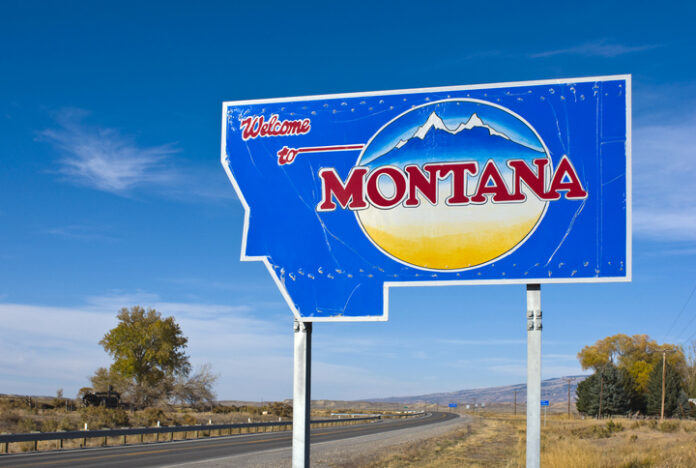Montana is one of only five states that do not have a sales tax, and Democratic gubernatorial candidate Mike Cooney says he wants a constitutional ban to make sure it stays that way.
Lt. Gov. Cooney recently received the nomination as Democratic candidate for governor after stating a firm anti-tax position.
“No sales tax, no statewide sales tax, not today, not two years from now, not ever,” Cooney told the Great Falls Tribune.
Cooney’s Republican opponent, Greg Gianforte, also strongly opposes a sales tax.
“Greg Gianforte has been clear: he opposes a sales tax. Period,” a campaign advertisement states.
Each candidate claims the other is not reliably anti-tax.
Republicans recently staged an event at a brewery in which they held signs calling on Cooney to “come clean” on his support of a sales tax. Republicans point out Cooney submitted a bill draft proposal for a sales tax in 2004.
Cooney told the Tribune his 2004 bill was simply meant to gain information on taxation. “To try to make that I am a pro-sales tax person as a result of that is a joke,” Cooney told the paper. Democrats claim Gianforte is a tax supporter, using the slogan, “Gian for tax” in news conferences.
Cooney has proposed a constitutional initiative to make the tax ban permanent. The current state constitution allows a general statewide sales tax of up to 4 percent. Changing the constitution would eliminate that option.
Previously, Montana residents have voted against sales tax proposals. Their opposition remains strong, with residents stating they already have a difficult time making ends meet.
Despite those clear signals from the public, the Montana legislature is considering tax hikes, the Washington Times reports. The state’s revenues in Fiscal Year 2021 are predicted to be $300 million less than estimated when the budget was approved in 2019. The general fund is expected to cover the decrease in revenue for 2020 and 2021, but by 2023 the state is projected to have a $253 million shortfall it won’t be able to cover, the Washington Times reports.
The legislature is split along party lines on the issue, with some Democrats calling for tax increases and Republicans advocating spending cuts.
Rep. Kimberly Dudik, a Democrat from Missoula, has proposed a sales tax and other potential tax increases. Dudik proposes raising a range of taxes, including the electrical energy tax and even the beer tax, which has remained constant since 1987.
Currently, the Republicans hold majorities in both houses of the legislature. They have not held the governor’s office since 2005. Republicans’ proposals for budget cuts in recent years have been rejected by Gov. Steve Bullock, a Democrat. Bullock is term-limited out of office at the end of the year.
Many other states and localities facing tough budget decisions like Montana’s are planning to increase taxes to cover the budget shortfalls while doing little to decrease spending, the Western Journal reports. Chicago Mayor Lori Lightfoot wants to raise property taxes to plug a $700 million budget gap. Seattle expects to make up its shortfall with a business tax of 2.4 percent on any local employee earning more than $150,000. New York state plans to tax billionaires.
Echoing the gubernatorial candidates in Montana, El Paso, Texas City Manager Tommy Gonzales is going against that tide, saying he will not increase taxes on hard-pressed residents and businesses.
“We really feel like we need to go slower and give our citizens a break and give our businesses a break,” Gonzales told KFOX-TV. “We think if they recover it will help the citizens recover as well.”
Reining in government spending should be part of the solution, Gonzales says.
“We are tightening our belts also,” Gonzalez said.
“There’s a number of us in the legislature who don’t believe this is a time to raise taxes on anyone in Montana,” Montana House Speaker Greg Hertz told the Associated Press. “Instead of looking at possible tax increases during these uncertain times, I think we really need to focus, just like all Montanans are, on reducing our expenditures.”











